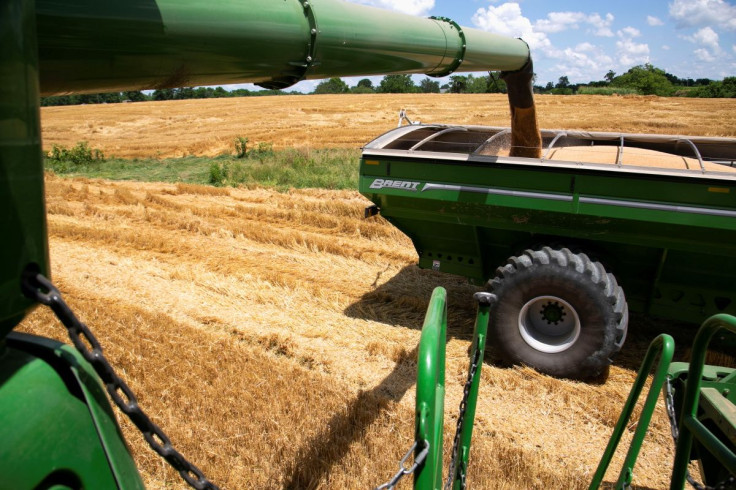U.S. Farm Incomes Could See Boost From Grain Rally - Chicago Fed

The current rally of U.S. grain and oilseed prices could help bolster American farm incomes this year, as Russia's invasion of Ukraine roils commodity markets over fears of massive disruption of exports from the Black Sea region, an economist for the Federal Reserve Bank of Chicago said Thursday.
But how big of a financial boost this ultimately will be for farmers remains murky, as production costs are soaring and the levels of pandemic and trade war-related supports the federal government has paid out since 2019 are falling.
"While the rally of agricultural prices is helpful, inputs are higher too," Chicago Fed economist David Oppedahl said during a Federal Reserve webinar about U.S. agriculture.
U.S. net farm income is forecast to be $113.7 billion this year, a 4.5% drop from 2021, according to data released in February from the U.S. Department of Agriculture.
But USDA's forecast is as of Feb. 4, or 20 days before Russia invaded Ukraine.
In its wake, Chicago Board of Trade wheat futures prices have jumped 26% and corn futures are about $1.00 per bushel from its record high. Russia and Ukraine combined account for about 29% of global wheat exports and 19% of corn exports.
Direct government payments are forecast to reach $11.7 billion in 2022, down from an estimated $27.1 billion in 2021, $46.6 billion in 2020 and $22.4 billion in 2019, according to the most recent USDA data.
At the same time, spending on nearly all categories of farm expenses is expected to rise this year. Total production expenses -- which includes fuel, fertilizer and crop chemical costs, among other things -- are forecast to be the highest seen since 2015, when adjusted for inflation, the USDA data shows.
Such financial tensions are also being seen to the north. Canadian farm income looks to decline 26% this year to C$19.7 billion from record levels in 2021, due to last year's drought, Agriculture and Agri-Food Canada, the country's agriculture ministry, said on Feb. 24.
"There's certainly a lot of uncertainty and we'll just have to keep track of things going forward and see how things shake out," Oppedahl said.
© Copyright Thomson Reuters 2024. All rights reserved.




















